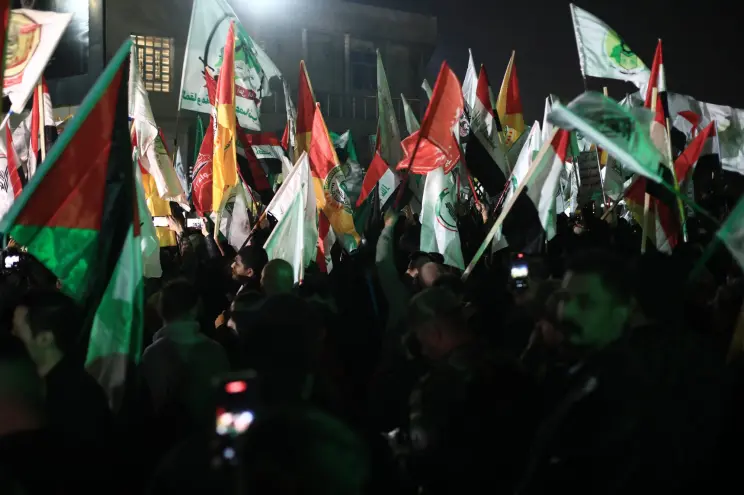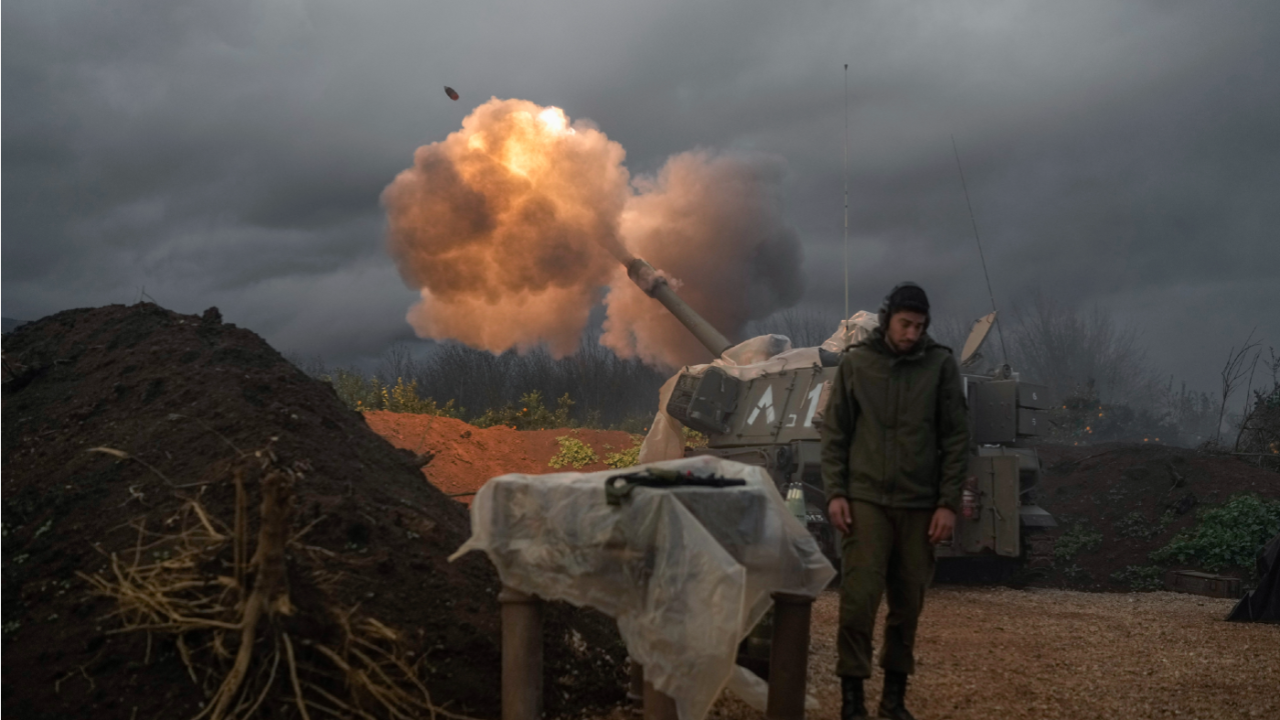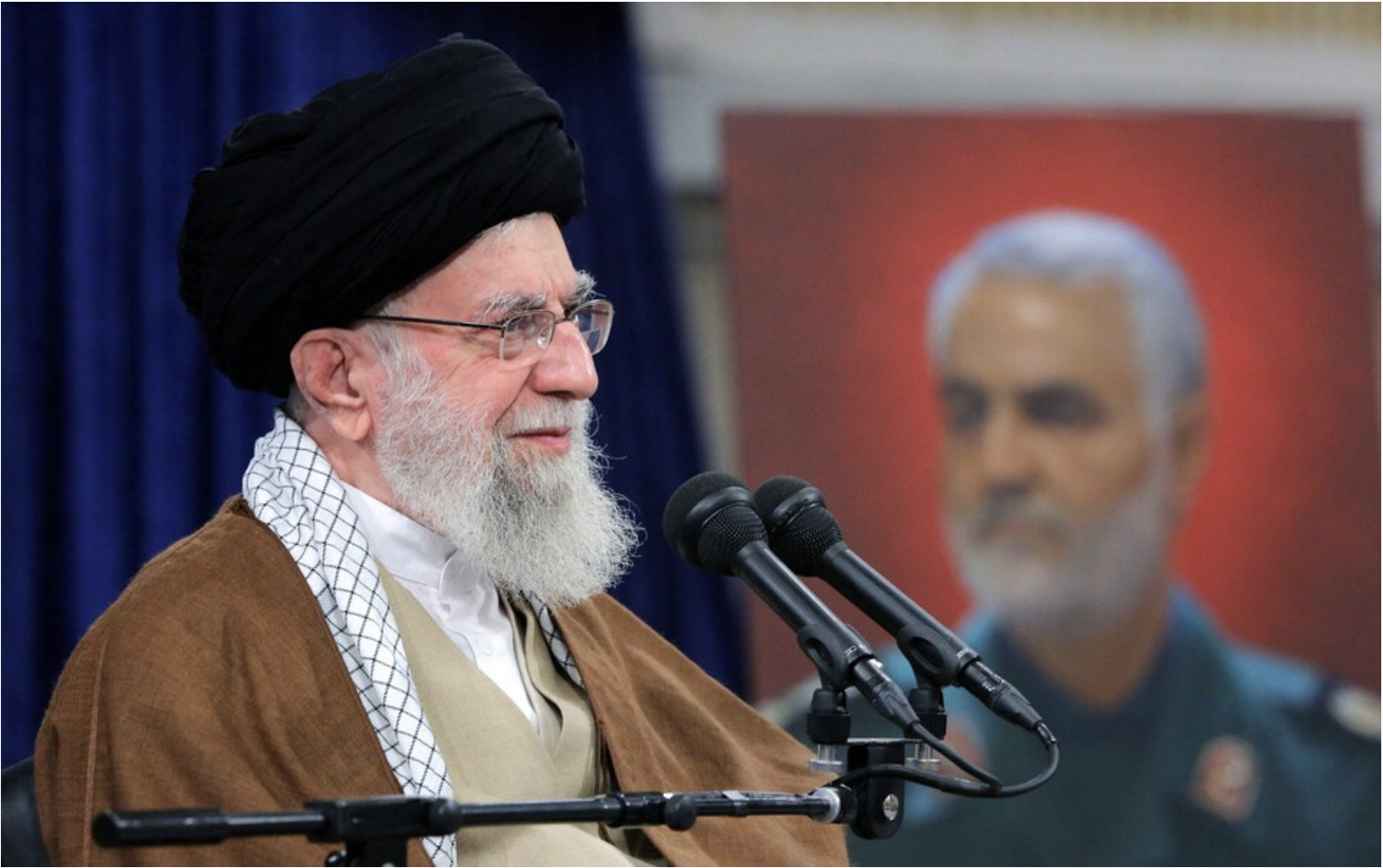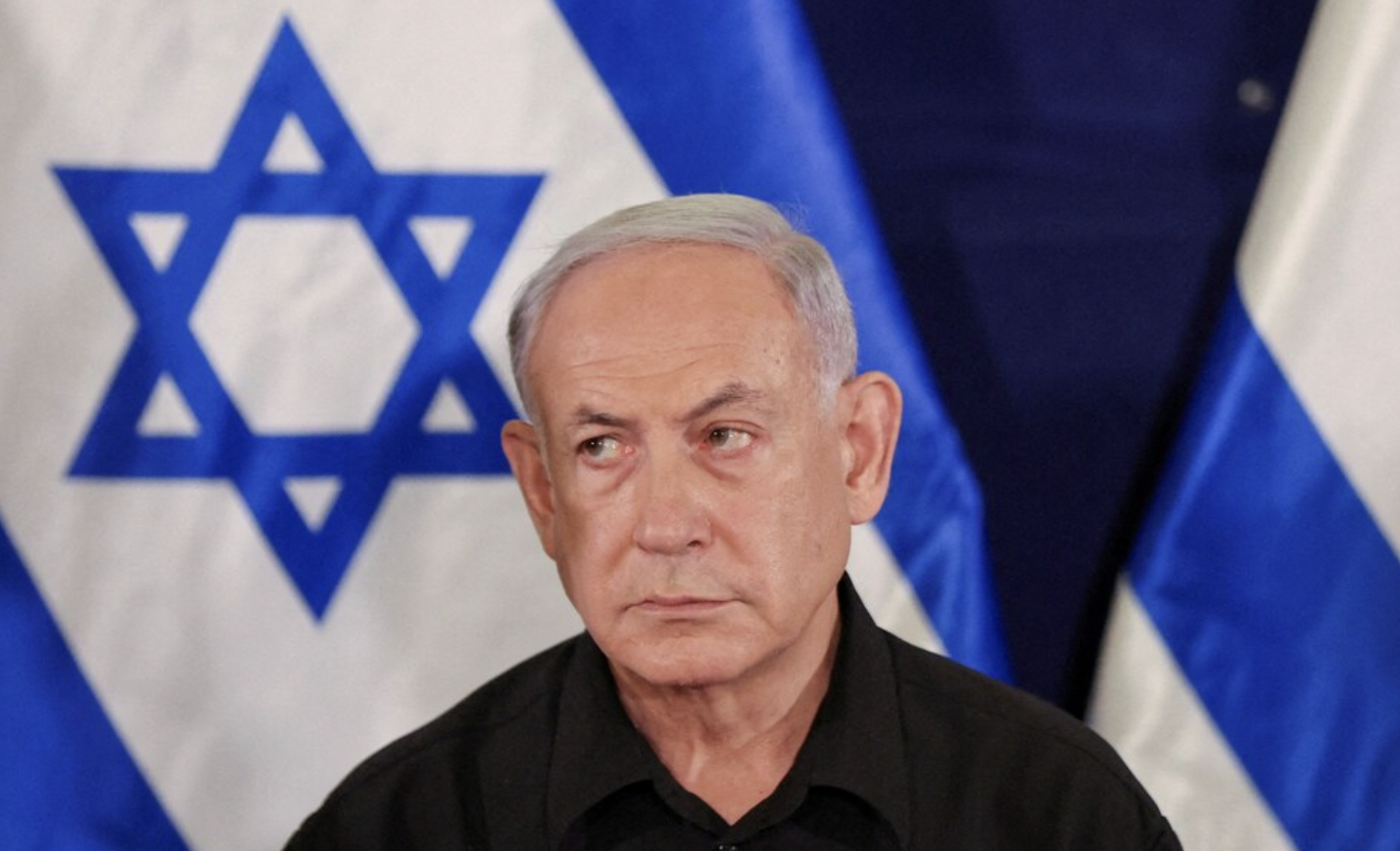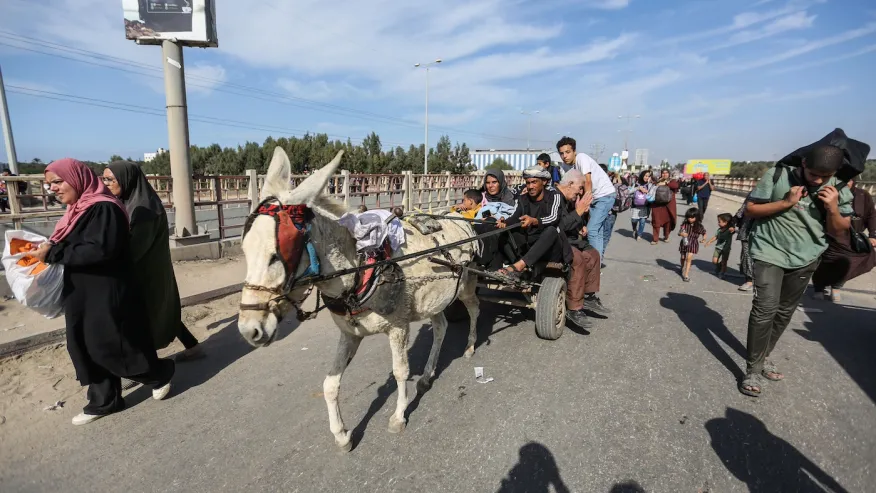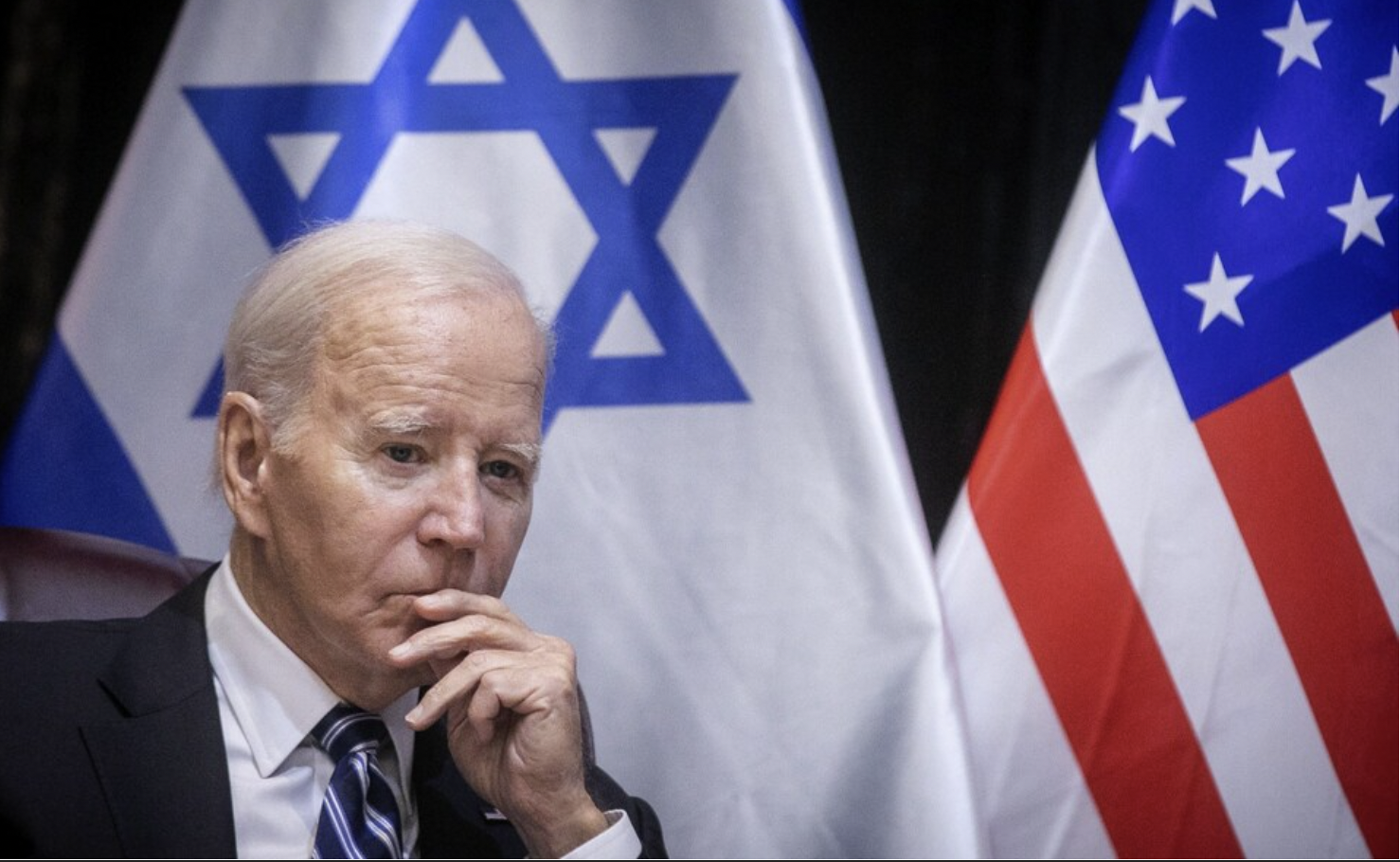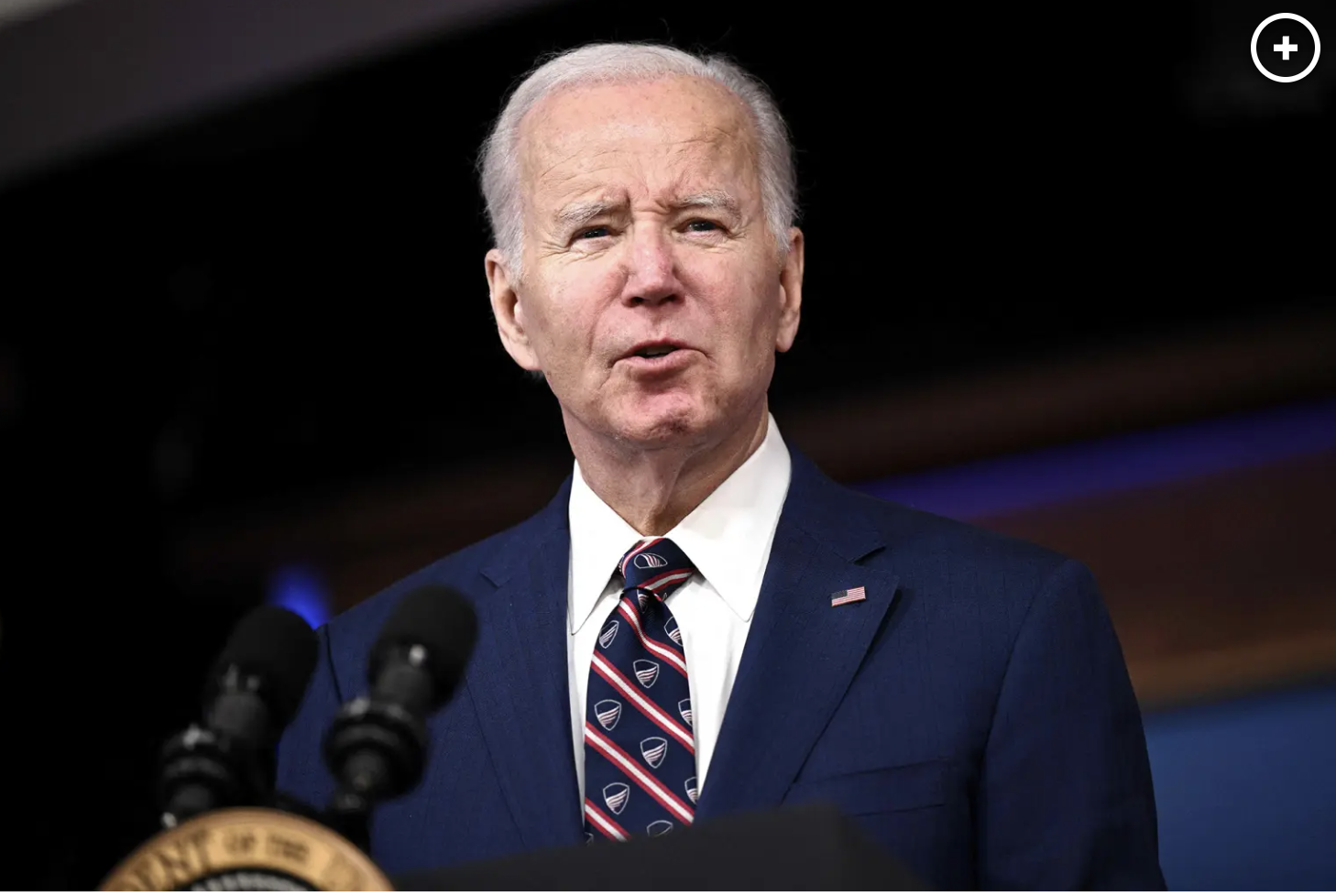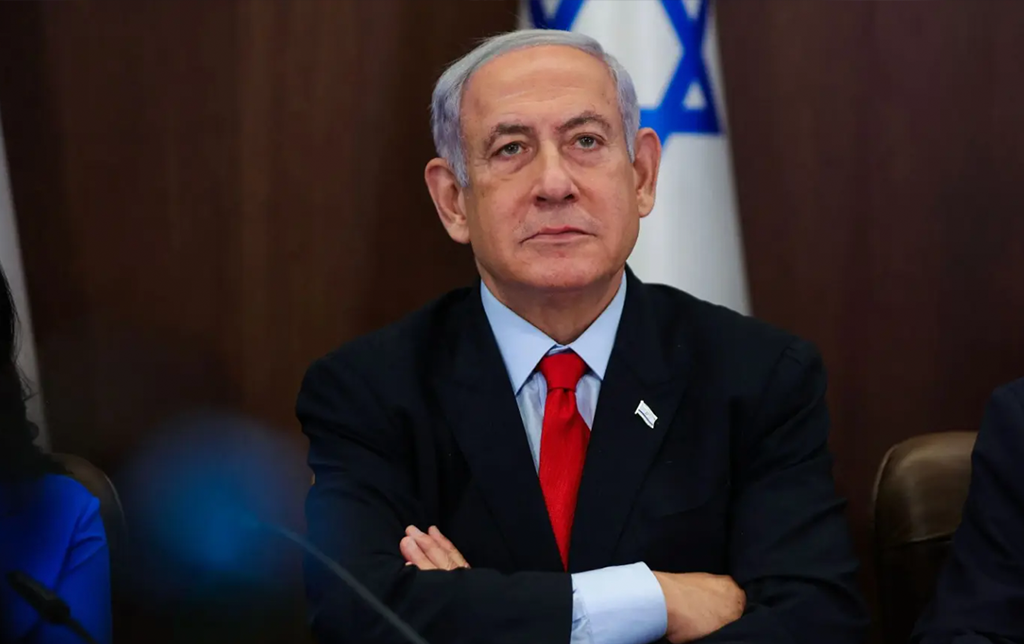When Hamas launched its blitzkrieg from Gaza on Oct. 7, it did not mark the onset of yet another Arab-Israeli war. Nor was it a war of Palestinians against Israel. Instead, the barbaric onslaught marked the beginning of an Iranian war against Israel, carried out by Tehran’s terrorist proxies. The war’s future course and duration are murky, but the ayatollahs’ underlying strategy is clear: close their long-envisioned “ring of fire” around Israel, permanently weakening or even paralyzing the Jewish State.
Jerusalem’s leaders and most neighboring Arab rulers grasp this reality. Sadly, however, the threat has not fully registered throughout the West. Instead, too many decisionmakers see only unrelated regional crises. They worry about an imminent “wider war,” heedless that the wider war began Oct. 7. The West is not thinking strategically about defeating Iran’s coalition, but is distracted by criticisms, often implicitly or explicitly antisemitic, purportedly expressing “humanitarian” concern for Gazans or the hostages Hamas kidnapped.
Also unclear is whether Israel has sufficient resolve to persevere until achieving true peace and security for its people. What Thomas Paine wrote of America now applies to Israel: “these are the times that try men’s souls.”
Consider the politico-military battlefield as it now stands.
Gaza remains the most active front in this multi-front war. Since the Oct. 7 surprise, timed almost exactly to the 50th anniversary of the Yom Kippur War, which also caught Israel off-guard, Israel Defense Forces have made steady progress. Right after Oct. 7, U.S. military advisers cautioned the IDF to proceed prudently, minimizing its own and Gazan civilian casualties.
Ironically, given current White House pressure to conclude major Gaza operations quickly, Americans stressed that their campaigns in Iraq to subdue Fallujah and Mosul took between nine and 12 months. This counsel proved wise, especially given the extraordinary tunnel system Hamas had spent 15 years digging under the Gaza Strip, not to benefit Gazans economically but to enable Hamas and its patron Iran to wage war against Israel. Accordingly, diversionary arguments like whether Hamas had command operations under the al-Shifa hospital, which it did, are beside the point. Al-Shifa hospital management and many others undoubtedly knew about Hamas’s activities and intentions.
The continuing debate over whether Iran “ordered” Hamas to attack on Oct. 7, or whether Hamas acted independently, obviously implicates Iran’s role in the broader conflict. Initially, Iran and Hamas vehemently denied Tehran’s leading role, awkwardly coupled with fervent pleas of mutual support. Now, even this pretense is gone.
Iran’s foreign minister recently threatened that, “if the U.S. continues its military, political and financial support of Israel and helps manage Israel’s military attacks on Palestinian civilians, then it must face its consequences.” Qassem Soleimani and his Quds Force worked for years to bring Iran’s terrorist proxies across the Middle East into closer alignment, arguing correctly that greater coordination and joint strategies would increase their collective threat to Israel. That has now come to pass.
Moreover, debate about Iran “ordering” Hamas is misplaced. Politico-military alliances rarely have rigid hierarchical structures. America leads NATO, but no one seriously believes Washington “orders” the other allies. Extensive planning and coordination precede most NATO decisions. Doubtless, senior political and military leaders in Tehran are frustrated with Hamas and others not seeing things exactly as they do, but friction and contention among coalition members cannot obscure the ultimate locus of power.
The other belligerent terrorist groups also act at Iran’s behest. Yemen’s Houthi rebels, for example, could not endanger commercial shipping or Western naval vessels in the Red Sea without Iranian arming, equipping, training and financing. The Houthis’ geographical location affords them enormous leverage over the southern Red Sea, and therefore the Suez Canal, through which 12 to 15 percent of the world’s trade (and some 30 percent of container-shipping traffic) passes. Insurance rates and prices on a wide variety of goods are rising and will increase as the conflict continues.
In recent years, Houthis launched Iranian drones and missiles against civilian airfields and oil infrastructure in Saudi Arabia and the United Arab Emirates, giving Iran launching platforms in the backyards of its Gulf Arab foes. The Houthis are a threat because of what Iran provides. Iran is not doing so as charity for Houthis, but to advance Tehran’s own interests. On January 11-12, after months of inaction, a U.S.-led coalition finally struck at Houthis targets in Yemen. Whether this long-delayed military response will suffice to deter further Iran-Houthi depredations remains to be seen.
Hezbollah, in Lebanon and Syria, is the crown jewel of Iran’s decades-long effort to create terrorist networks with global reach. Hezbollah’s shelling of Israel resumed after Hamas’s initial attacks, but the group has not yet launched an all-out war. Some therefore say Hezbollah is a reluctant Iranian partner, which may have some basis. But, as with the Houthis, the tens-of-thousands of Iranian-supplied missiles are not to empower Hezbollah but to extend Iran’s striking power against Israel.
We do not know Iran’s next steps; perhaps even Iran is uncertain. But when Tehran decides the hour has come, Hezbollah will do what its paymasters demand. The same is true for Syria’s Assad regime, although its military capabilities are much less consequential.
Understandably, many Lebanese fear more intense conflict, but Hezbollah and Iran may leave Israel few options. Hezbollah’s massive missile arsenals could overwhelm Israel’s air defenses, causing untold destruction, which Jerusalem, also understandably, will not passively await.
Westerners constantly calling for “avoiding a wider war” are blissfully free from the consequences if their focus is mistaken. Objectively, limiting Israeli or U.S. self-defense only benefits the aggressors, who see restraint not as a sign of goodwill but of weakness, thereby inviting future attacks. Israeli preemptive strikes may be unavoidable, without which this conflict’s trajectory remains under Tehran’s control.
In Iraq and Syria, Shia militia groups, also fully supplied and financed by Iran, form another front, directed primarily against American military and civilian personnel. Since Oct. 7, there have been well over 100 militia attacks, including the rocketing of America’s embassy compound in Baghdad. Casualties to date have thankfully been low, but Pentagon officials attribute that relative good fortune to luck — hardly an adequate strategy. Washington’s military responses have increased gradually, most recently eliminating a militia commander in Baghdad, but these minimal actions have not deterred further assaults.
Iran’s own naval and air assets constitute a potential fifth front. Tehran has seized oil tankers and other ships in its vicinity for years, unfortunately not effectively challenged or deterred to date. Accordingly, Iran can decide when to raise the stakes in the region yet again — and, as if on cue, it did so last week.
Significant developments outside the Middle East have also been unhelpful. Most notably, Moscow seems to be switching sides, moving from relatively good relations with Israel (stemming from Russian Jewish emigration) to outright hostility and alliance with Tehran. Almost immediately after Oct. 7, Russia’s UN ambassador asserted that, as an “occupying power,” Israel had no legitimate right of self-defense against Hamas. While Vladimir Putin later walked that comment back, the argument spread widely among Hamas advocates.
Russia also ordered the Wagner Group to supply Hezbollah with sophisticated Russian air-defense systems, obviously to protect against Israeli strikes. Moreover, Moscow’s foreign ministry condemned Israeli raids against shipments of sophisticated Iranian weapons to Hezbollah as violating Syrian sovereignty and international law. Previously, so long as Israel deconflicted with Russia’s military before entering Syrian airspace to avoid Russian casualties, Moscow gave Jerusalem a free hand. If that has changed, it is a significant new military reality, highly adverse to Israel.
The United Nations role in the current conflict has been all but invisible. As in Cold War days, the Security Council is in near-total gridlock. With Russia and China providing Iran and its proxies political cover, it is impossible to hold to account Hamas’s barbarism, Houthi interference with freedom of the seas, Hezbollah’s looming menace or Shia militia terrorists. Instead, protecting Israel from the antisemitic performance art and propaganda now displayed at UN headquarters falls mostly to Washington. The UN bureaucracy remains riddled with anti-Israel personnel, and UNRWA, its relief agency in Gaza and the West Bank, appears to effectively be an arm of authoritarian and terrorist Palestinian rulers.
What Israel, the United States and other allies will do in coming days is as uncertain as Iran’s war plan. To restore lasting international peace and security, Israel must accomplish its stated objective of eliminating Hamas politically and militarily. The same could be said about Hezbollah, the Houthis and the Shia militias.
The real problem, of course, is Tehran. Until a sane government, even if not Jeffersonian democracy, replaces the mullahs, there will be no peace and security for anyone in the Middle East.
This is a hard truth for many to swallow because it inevitably requires regime change in Iran. Yet, inarguably, that is what Iran’s people want. Not since the 1979 Islamic Revolution itself has the regime been so weak and threatened. Success for Iran in the current conflict, after facing down Israel, America and the West generally, will only strengthen the ayatollahs’ rule. That’s why Winston Churchill’s World War II admonition to Britain applies today to Israel: “without victory, there is no survival.”
This article was first published in The Hill on January 14, 2024. Click here to read the original article.
